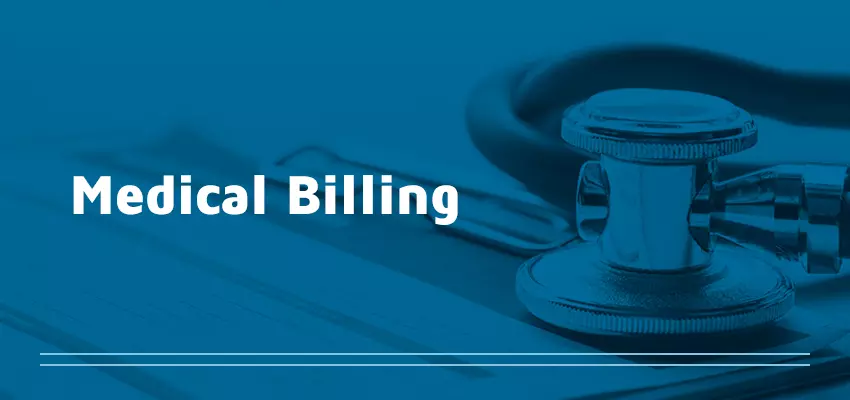Medical billing is the process of generating and submitting claims to insurance companies for the purpose of obtaining payment for medical services rendered by healthcare providers such as hospitals, doctors, clinics, and other healthcare facilities.
The process of billing starts when a patient registers and schedules an appointment. This is also known as front-end billing that includes a member of administrative staff verifying that your health plan will cover the requested services. During this time you will be informed of any future financial responsibilities.
The remainder of the billing process happens in the back end wherein medical coders and back-end billers create an itemized superbill that your provider can use to create claims. The supper bill consists of all the information that justifies medically necessary care, including provider information, patient information, and service information.
Once the claim is prepared a biller will review the claim and ensure that all the procedure and information is complete and correct. After verification the biller transferred the claim to the payer, who will again verify the information to ensure reimbursement.
Next comes adjudication wherein, the payer will assess a provider’s claim and determine how much it will pay the provider,or if additional information is required, or reject or deny the claim.
The billing process comes to an end when the medical biller receives the total balance of a patient’s bill and closes the patient account and concludes the billing cycle.
The medical billing industry is rapidly evolving, with an emphasis on improving the efficiency and accuracy of medical billing operations, as well as the quality of patient care. Today, medical billing is reshaping the healthcare system as technology advances and virtual care is implemented.
To capitalize on this opportunity and increase revenue while providing high-quality patient care, healthcare organizations are expanding their technological footprint by automating workflows and implementing new medical billing practices.
As a result, keeping up with current medical billing trends is critical for medical practitioners looking to optimize the process and deal with the complexities of billing and coding.
However, when it comes to medical billing there have many been many new developments which are trending, and adopting the wrong one can be quite risky while requiring a significant amount of time and resources.
To help you make a more informed decision, I have shared key details on 5 medical billing trends that are transforming the healthcare industry.
Outsourced medical billing
Working with an experienced outsourcing firm can help healthcare practitioners reduce their workload, improve workflow, and reduce errors. This proved quite true during the recent pandemic, with remote outsourcing firms aiding healthcare facilities to remain operational.
Outsourcing medical billing services, for example, allowed providers to devote more employee resources to other aspects of their business, achieve higher payment rates and faster cash flow, and increase compliance with healthcare regulations.
Other functions, such as Revenue Cycle Management, can also be outsourced to qualified billing professionals, who can ensure better clean claim results and more on-time payments. As a result, you will have more time, energy, and resources to devote to other aspects of your company’s operations.
Enhanced data privacy and cybersecurity
Because of the sensitive and personal nature of the information processed and stored, data privacy is another aspect of medical billing that must be protected. In contrast, your failure to protect sensitive client information may result in significant legal and regulatory consequences for healthcare providers, such as fines and reputational harm.
As a result, compliance with relevant cybersecurity regulations and the implementation of best practices for protecting sensitive information in medical billing systems becomes critical for healthcare providers.
Given the importance of data privacy and security, medical professionals are quickly catching up, implementing new and improved cybersecurity protocols to ensure the security of patient data and records.
Automated coding process medical billing
Because the rise of automation in healthcare has simplified clinician workflow, an increasing number of healthcare providers are turning to automation to handle administrative tasks and improve data accuracy.
Implementing an autonomous coding mechanism, for instance, ensures the absence of coding errors while decreasing medical coding and billing time. Furthermore, it eliminates manual errors that are common in billing systems.
Given the potential for improving the efficiency and accuracy of medical billing, the trend is expected to gain traction over time.
Introduction of of ICD-11 medical billing
The International Classification of Disease or ICD has been in the works for quite some time and is set to become the worldwide standard for disease classification this year. ICD provides a common language for recording, reporting and monitoring diseases enabling healthcare professionals to compare and share data in a consistent and standard way.
Adopting the eleventh revision of ICD will not only help you accurately track information about diseases and health conditions in patient records but also play a role in the billing process.
Summig up
it has evolved significantly in recent years, owing to changes in the healthcare industry and technological advancements. This is evident in the growing demand among healthcare provider organizations for highly trained, highly skilled medical billers.
As a result, the medical billing services industry has also become an important partner of healthcare providers by providing experienced services to increase revenue. Outsourcing, along with the other trends mentioned in this post, provided a clear path for the healthcare industry to evolve and overcome challenges such as the COVID-19 pandemic.
– If you are looking for guest posts write for us health now.

